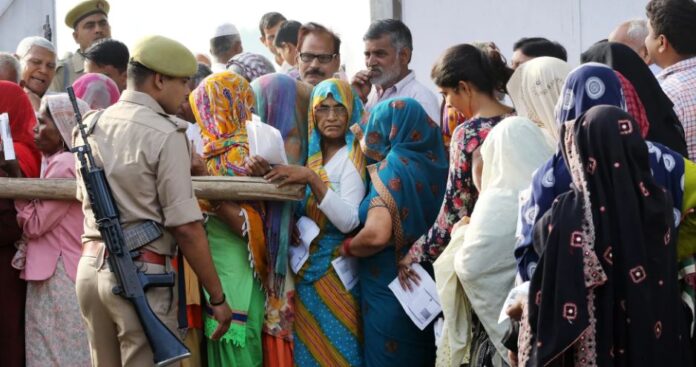New Delhi: The Union Cabinet has approved the government’s ambitious ‘one nation, one election’ initiative, which aims to synchronize Lok Sabha and Assembly elections starting from 2029, along with holding urban body and panchayat polls within the next 100 days. This move follows the endorsement of a report led by former President Ram Nath Kovind.
The panel, which included key figures such as Home Minister Amit Shah and Law Minister Arjun Ram Meghwal, recommended simultaneous elections as a means to optimize resources and streamline the electoral process. It also proposed provisions for a ‘unity government’ to address scenarios of indefinite results or no-confidence motions.
Prime Minister Narendra Modi has expressed his commitment to implementing this proposal during his third term, as stated in his Independence Day address. However, realizing this vision will require amending the Constitution in at least six places, a process needing two-thirds majority approval in both Houses of Parliament and ratification by all states and Union Territories. The BJP-led government currently falls short of this threshold by 52 votes in the Rajya Sabha and 72 in the Lok Sabha.
The proposal is a key element of the Bharatiya Janata Party’s (BJP) 2019 and 2024 election manifestos but has faced significant opposition. Critics, including 15 political parties such as the Congress, argue that the plan is impractical and could disrupt existing constitutional frameworks. Concerns have been raised about potential constitutional amendments, the feasibility of aligning Assembly terms, and the financial cost of implementing electronic voting machines (EVMs).
The panel backing the initiative believes that simultaneous elections could enhance voter convenience, drive economic growth, and reduce disruptions caused by multiple election cycles. The government has emphasized that 80% of initial respondents support the proposal.
Despite support from some quarters, opposition parties have warned that the proposal could divert attention from pressing issues and may not be feasible under the current constitutional framework. Regional parties have also expressed concerns about the impact on local issues and the logistical challenges of conducting nationwide elections simultaneously.
Currently, elections for different states and Union Territories are held on staggered schedules, with a few exceptions. The implementation of the ‘one nation, one election’ plan would represent a significant shift in India’s electoral process, requiring extensive legislative and administrative changes.
Key Points:
- Approval of Initiative: The Union Cabinet has approved the ‘one nation, one election’ proposal, which aims to synchronize Lok Sabha and Assembly elections from 2029 and conduct urban body and panchayat elections within 100 days.
- Report Endorsement: The plan follows a report by a panel led by former President Ram Nath Kovind, including prominent members like Home Minister Amit Shah and Law Minister Arjun Ram Meghwal.
- Implementation Challenges: The proposal requires amending the Constitution in at least six areas, needing a two-thirds majority in Parliament and ratification by all states and Union Territories.
- Government Commitment: Prime Minister Narendra Modi has committed to implementing the proposal during his third term, despite current parliamentary limitations.
- Criticism and Opposition: The proposal faces heavy criticism from 15 opposition parties, including Congress, who argue it is impractical and may disrupt existing electoral and constitutional frameworks.
- Financial and Logistical Concerns: The opposition has raised concerns about the cost of EVMs, potential constitutional amendments, and the impact on local issues and Assembly terms.
- Panel’s Arguments: The panel argues that simultaneous elections will streamline the electoral process, reduce disruptions, and boost economic growth by providing stability for businesses.
- Public Support: The government claims strong public support for the proposal, with 80% of respondents backing the idea during initial discussions.
- Current Electoral Cycle: Presently, elections are held on a staggered basis across states and Union Territories, with only a few instances of synchronized voting.



